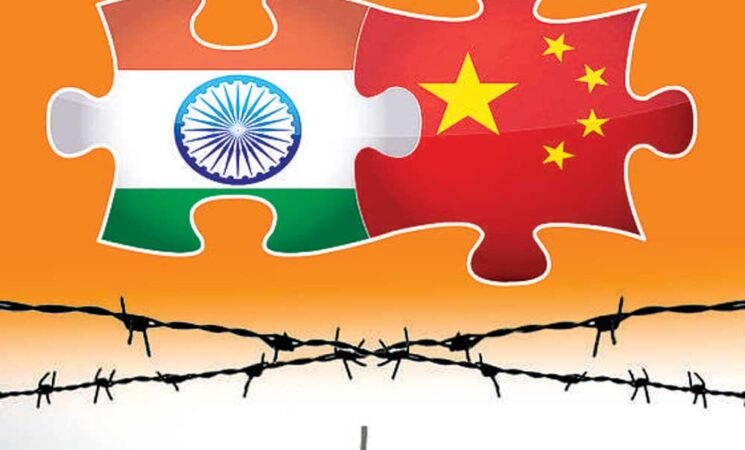7 June 2020, NIICE Commentary 5260
Prakash Shah
The Chinese military advances on the India-China border, which is unsettled in the Eastern, Central as well as the Western sector, has been the subject of current discussion both in India and the world, despite the Coronavirus pandemic which is affecting most of these countries.
Both the Government of India and the people of India remember the humiliation imposed on them by China during the 1962 War, largely due to the incautiousness of the then Prime Minister Jawaharlal Nehru, whose preference for China in international relations is well known by now. Since then, people of India had twice elected a BJP majority government led by Narendra Modi, whose attitude towards China is more robust and firm, compared to Nehru’s. The then Prime Minister who exercised almost monopolistic power over India’s foreign policy, first welcomed the takeover of China by the Communist government which overthrew Chiang Kai-Shek and established an alternative government in 1949 in Taiwan, which has claimed the imagination of the world in general as a result of its dynamic and alternative pro-business approach to policy, as against the highly anti-business and anti-human rights policy of the Chinese government. The Chinese communist government eliminated millions of people during the Cultural Revolution and the Tiananmen Square opposition. Despite the fact that the Chinese government has intelligently implemented the dual policy of a dictatorial, political, undemocratic system, with an accommodative economic policy which has made China the most progressive, emerging economy, their current affairs to destroy freedoms in both Hong Kong and South China Sea has created doubts about Chinese policies, mainly among countries which happen to be their biggest markets.
The Chinese aggressive and militarist policies against India and in South Asia have increased views amongst the people of the region about China’s intentions about gaining political leadership amongst these countries. In a recent poll conducted by TV18 of India, 90 percent of the population was willing to boycott Chinese goods, 61 percent was against the Huawei company to be given the 5G contract, and some 70 percent of the responders answered that they will stop buying China-made goods. Even though some 5 percent of the respondents said that they will continue to buy Chinese goods because they were cheaper, I remember that when I was Ambassador of India to Japan some few years ago and Japanese goods were more expensive than foreign goods, the Japanese bought only Japan-made products as a patriotic measure. Considering that the Indians were willing to continue buying Chinese products are economically well placed in India, however, one can hope that they will shift to Indian products in the days to come, out of a sense of national pride.
On bilateral relations with China, India have disputes with them on the border in the north. However, the discussions in India is largely confined to the military strength between India and China and how much Indians can live in economic terms if they boycott Chinese products. Since a more robust military policy against China and the boycott of Chinese products, is advocated by the Government of India lead by PM Modi, the Anti-Modi Lutyen’s lobby is against these policies. They argue that India is militarily not well-placed against China on the border, that our infrastructure and military supplies to the armed forces cannot match the Chinese and since the foreign countries like the US, France, Australia and others are only supporting India against China verbally, and will do so probably with military equipment, but they have no intention of sending forces to fight along with Indian forces, India should take a submissive view vis-à-vis China as they did in 1962. There are others, a larger number of analysts and armed forces officers who are supporting India’s more robust policy on the grounds that India is much more prepared militarily and in terms of infrastructure in border roads, than they were in 1962. India is a leading emerging economy, is capable of diplomatically adjusting its new foreign policy to suit India’s aims and that the Chinese have big problems at home about dissatisfaction of Chinese people and they have problems with the US and the West on Hong Kong, Taiwan and South China Sea . China also have trade and other issues with the US, and are therefore in a weak position, hence Indian policies should be in accordance with the present situation.
Additionally, the western powers still believe that the COVID-19 is man-made in China and was exported by them to hurt the rest of the world and are, therefore, asking for an independent investigation by WHO or any international neutral group. Similarly, China has been backing Pakistan on the issues of Kashmir. The refusal of both India and China, of the meditation offer of President Trump, signifies that both the countries have many bilateral avenues to discuss and settle their differences and also gives lots of hope that both the countries will not go for military confrontation, rather resolve it through talks.

